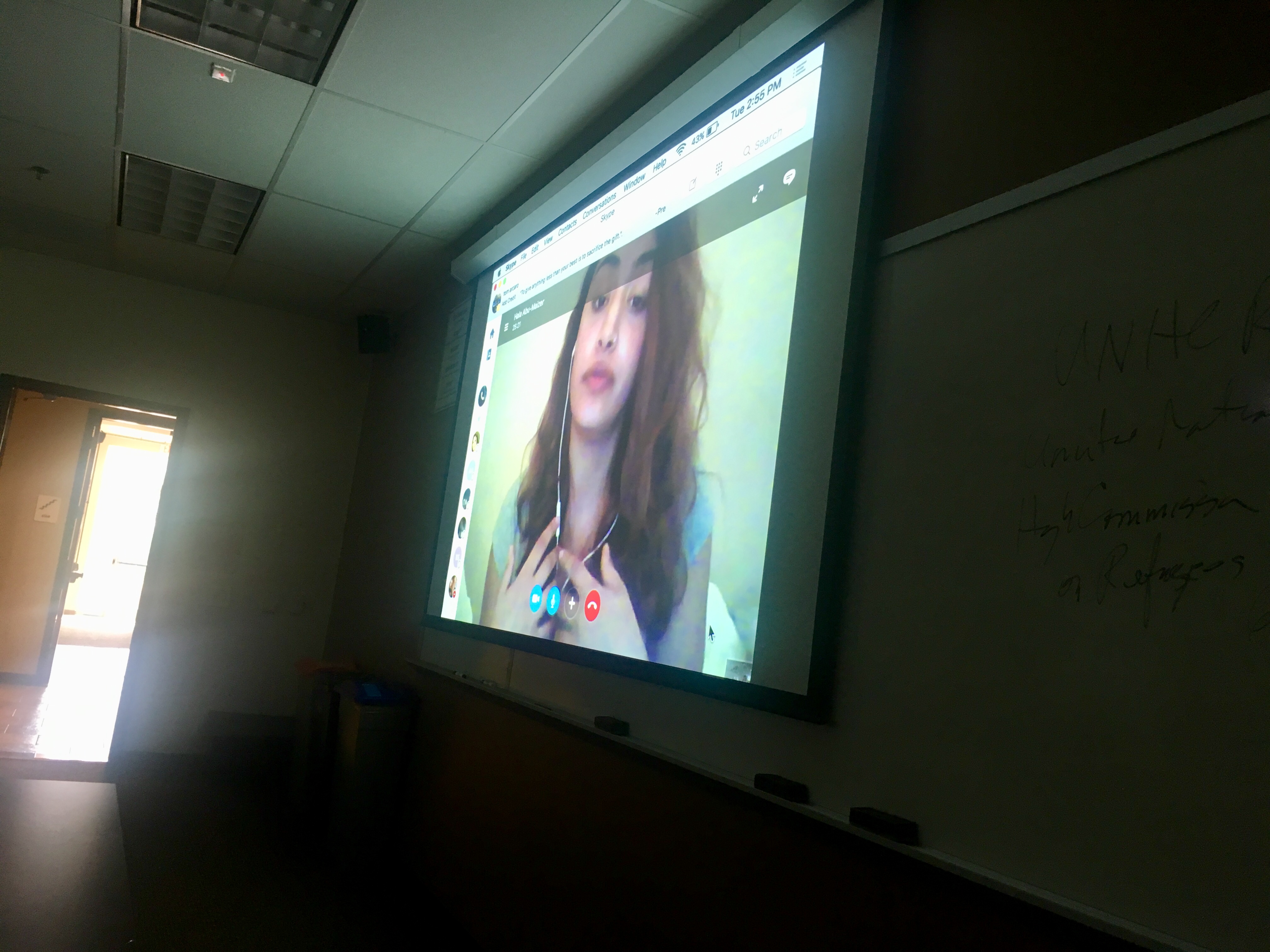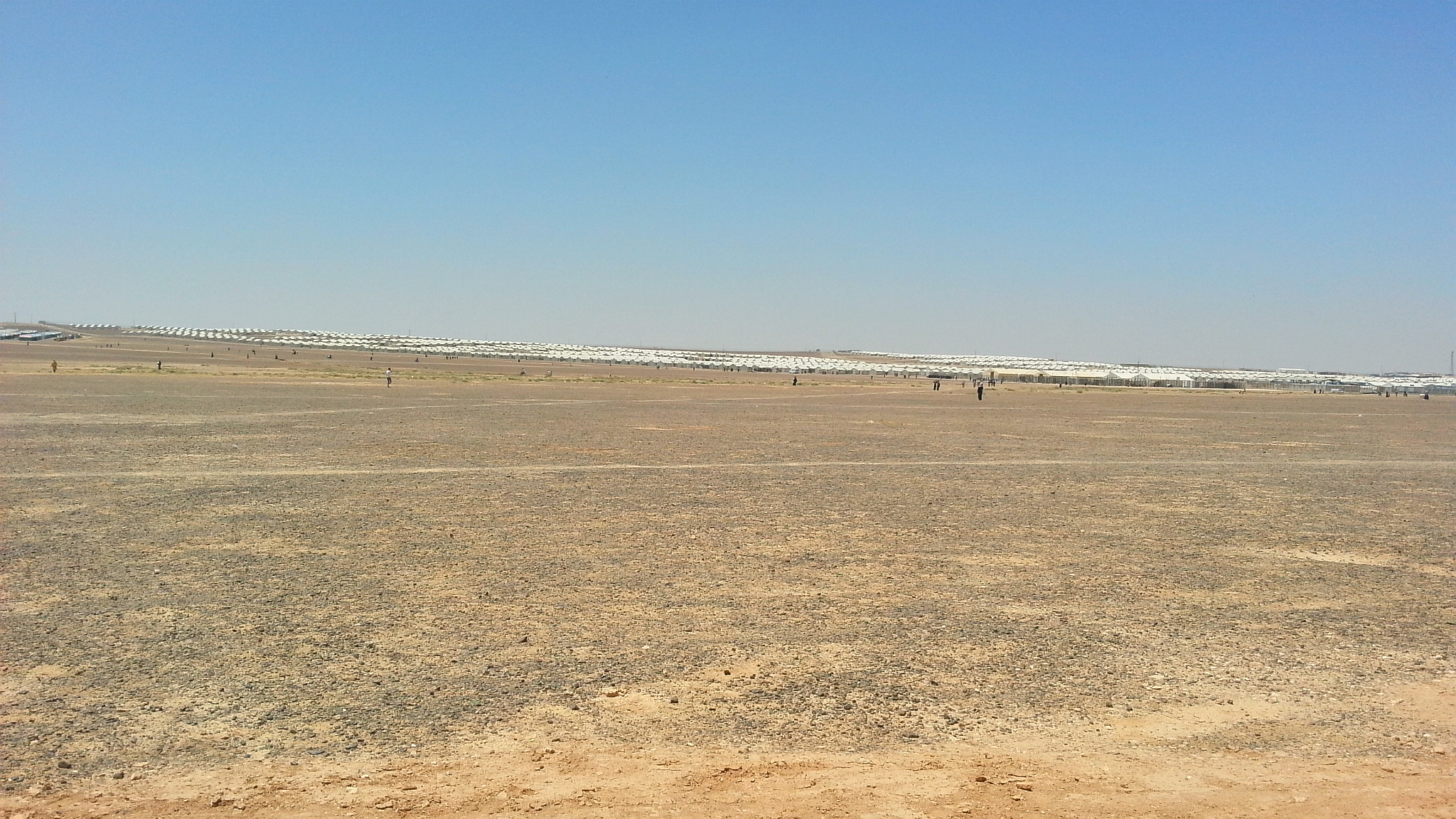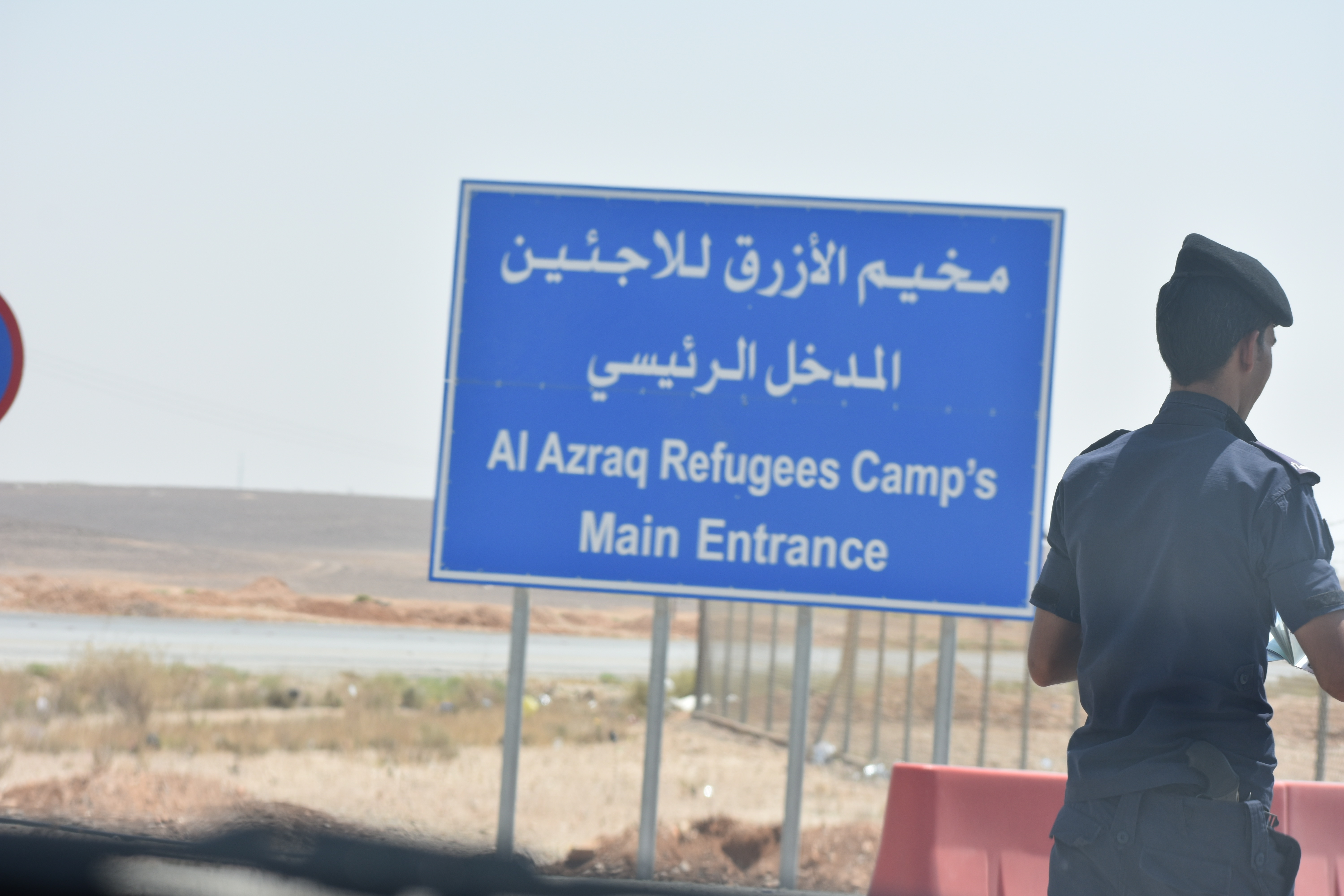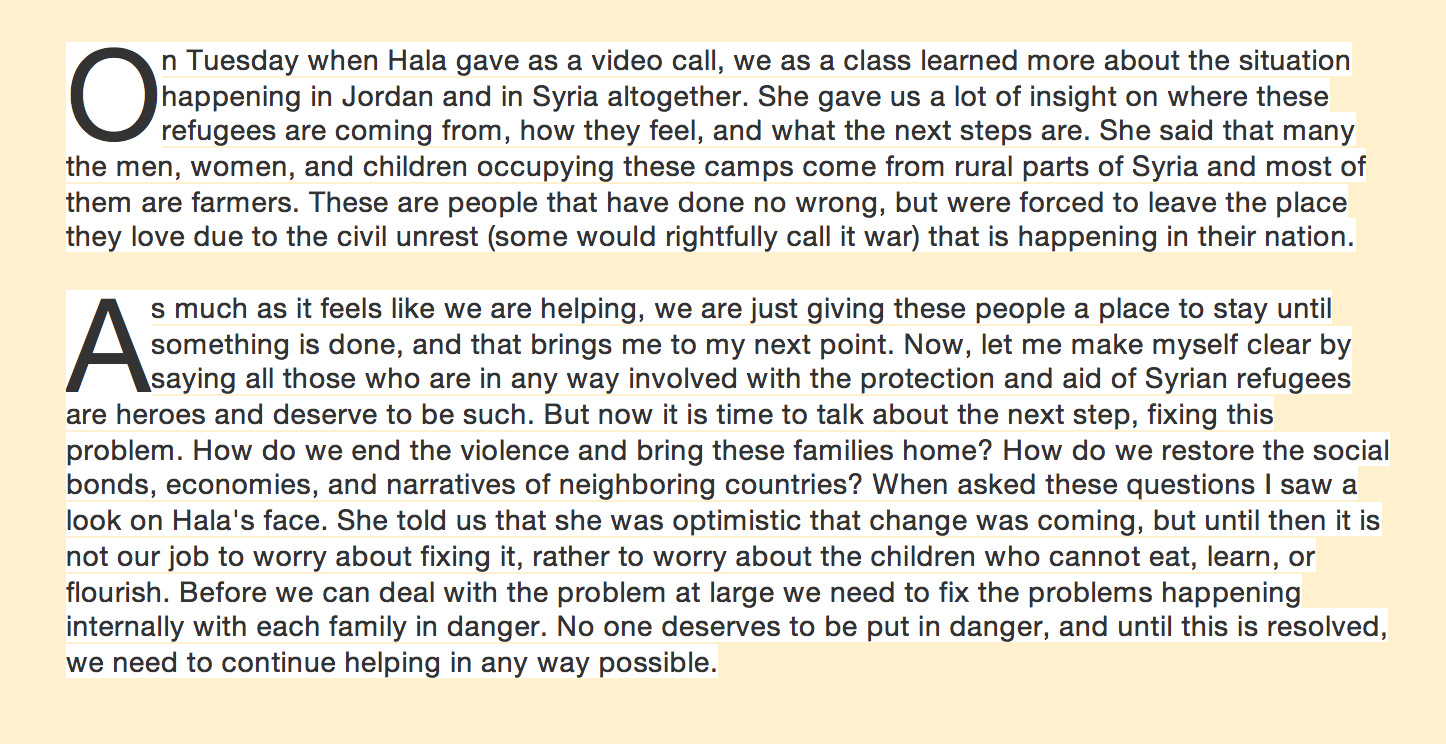And the student asked, “What can we do?”
Bringing aid worker voices to students at my university
I can’t take my class on a field trip to the Middle East or to the Jordanian headquarters of some INGO that is part of the Syrian refugee response, but via Skype I can bring meaningful voices into our classroom space.
Last spring I invited an Evil Genius to my class. Then deployed in Jordan, our class had a chance to learn from J, a 25 year veteran of the sector. Here is the post about that visit.
At exactly the same point in my Intro to Sociology course this fall -covering a chapter on global poverty and wealth- I again invited a humanitarian to class, this time a young, bright local aid worker named Hala, a Jordanian of Palestinian decent, that I met when I traveled to Amman last August for my research. As I expected, my class listened to our 35 minute chat intently and several were bold enough to ask Hala questions near the end of our session.
I must point out that in this class of 28 students only a small handful indicated they felt confident finding Jordan on a map, and most had no clear idea the scope of the refugee crisis in the region. I spent class time before our Skype session giving a broad history and overview and then, after we signed off, lectured about (among other topics) the critical role that remittances and cash transfers play in the lives of the refugees. My intent here being to clarify and expand on the complicated and complimentary support responses being made by the Syrian diaspora and the aid sector.

Our conversation
Given that the audience was, in general, not well informed Hala kept her comments both general and largely positive. We talked about life in the camps and how the traditional cultural norms were maintained as much as possible. Our conversation touched on the reality that going ‘home’ to Syria was not an option for most families, and that though most refugees (80%) have been integrated into the Jordanian economy in some fashion, those that live in the camps like Azraq and Zaatari have a difficult life, especially when looking into the future.
Hala told me after the session that,
“I didn’t want to paint a negative picture of people who live in traditional/strong cultures as bad or backwards. These cultures exist all around us, even in the U.S, and it is not about pointing fingers, agreeing or disagreeing, it is about recognising them and choosing to respect them, as well as involving them in the conversation. How would these people like to be fed, what is considered the cultural norm and what isn’t?”
“What can we do?”
The prompt I gave my students was fairly simple. I asked, “What did you learn from Hala and how did your experience in this class learning the sociological perspective help you understand what was being talked about?”
One theme of their responses was captured by this student who wrote, “Hala’s advice to us to help with the Refugee Crisis was to be aware of what is going on and be educated. By saying this, she is telling us to avoid ethnocentrism. We cannot only pay attention to what is going on in our country. We must be global citizens and worry about what is happening to the world around us.”

Indeed, on the opening page of my syllabus is this quotation, meant to convey my teaching philosophy and an intellectual charge:
“In contrast to those who suggest that we act as soon as the whistle blows, I suggest that, even before the whistle blows, we ceaselessly try to know the world in which we live — and act. Even if we must act on imperfect knowledge, we must never act as if knowing is no longer relevant.”
– Mahmood Mamdani, Saviors and Survivors (p. 6)
This next student shows a deep understanding and provides affirmation that this investment in class time is very positive.
“Hala taught me that bad things happen in the world that are depressing, and as privileged people, we do what we can to help those who have much less and are less fortunate than us. To help me understand privilege from another angle, she explained that Syrian refugees and other families that end up in refugee camps in Jordan have done nothing wrong that caused their current situation. Simply “working harder” or persevering would not allow these people to have a different outcome. In the same way, most students at Elon didn’t do anything better than refugees to grant us access to an upper-level education. She helped me to understand that bad things happen to good people, and we must do our best to educate ourselves on injustices in the world and take action in whatever way we can, from voting for a politician who favors support to refugees to donating money to the cause.
Learning the functionalist perspective in this class helped me understand different elements of Hala’s talk with us over skype; for example, the functionalist explains how all elements of society are interconnected. Hala talked a lot about the interaction with the refugee crisis in the Middle East with the economy. As a sociologist, I can begin to understand how adding thousands of new families to an area with limited jobs and resources can add pressure to the economy as well as competition for jobs and substinence to support a family. Adding more cash flow through remittances and donations stimulates growth in the economy since people have more to spend, which will allow businesses to thrive.
Hala’s talk with us over skype; for example, the functionalist explains how all elements of society are interconnected. Hala talked a lot about the interaction with the refugee crisis in the Middle East with the economy. As a sociologist, I can begin to understand how adding thousands of new families to an area with limited jobs and resources can add pressure to the economy as well as competition for jobs and substinence to support a family. Adding more cash flow through remittances and donations stimulates growth in the economy since people have more to spend, which will allow businesses to thrive.
While Hala wants to have hope for the refugee situation in Jordan and other host countries, she illustrated her struggle in seeing an improved world for these people. One quote that we’ve discussed in class was, “What is the line that separates those who are merely moved and those who are moved to act?” Hala’s talk has moved me and my fellow students, but I wonder who will be moved to act. Anyone can use their privilege to benefit those who are much less fortunate, and our talk with Hala has solidified my desire to do so.”
Most of the student responses were equally insightful. I’ll end with this one which ends with a very mature statement.
” One thing that stuck out to me was at the very end of speaking with Hala, a classmate asked, “Is there anything we can do to help.” At first Hala said that really there is not much we can do. She seemed stumped by this question. But then she went on to talk about how we must educate ourselves, and educate others on the situation and to always be aware. I took from this that in order to prevent situations like these from happening, we are fortunate to have it not directly affect us, but we must be aware and ready to help and spread awareness. Hala knows the situation in Jordan is not good, but her positive outlook on life is something I won’t forget. As she spoke to us she never seemed angry or upset, she seemed just as if she is constantly looking ahead. She explained that [INGO’s] help by sending them food and water, but even so, they are in the middle of the desert, receiving minimal treatment. The sociological perspective makes me thankful for the life that we have here, but also makes me want to learn more about those who have completely different backgrounds than I, have a different life than I, but do not deserve less than I.” (emphasis added)

Several times in class I have mentioned the Universal Declaration of Human Rights as a high-water mark in terms of our global commitment to a more just world for all, and this student appears to have taken this seriously.
A needle moved?
So, what was accomplished by having this local aid worker from Jordan talk to a bunch of young undergraduates from the Global North? Social change is sometimes generated by focused and dramatic historical moments, but more often than not change is caused by the accumulated impact of countless seeds cast onto the vast landscape of our world. Some of these seeds will germinate immediately, some only after much time has passed. Hala’s words and infectious smile are now part of these student’s memories, and my hope is that in time their actions will, collectively, indeed move the needle forward.
Thank you Hala for your visit!
Feedback, comments, suggestions? Contact me here.


 Follow
Follow